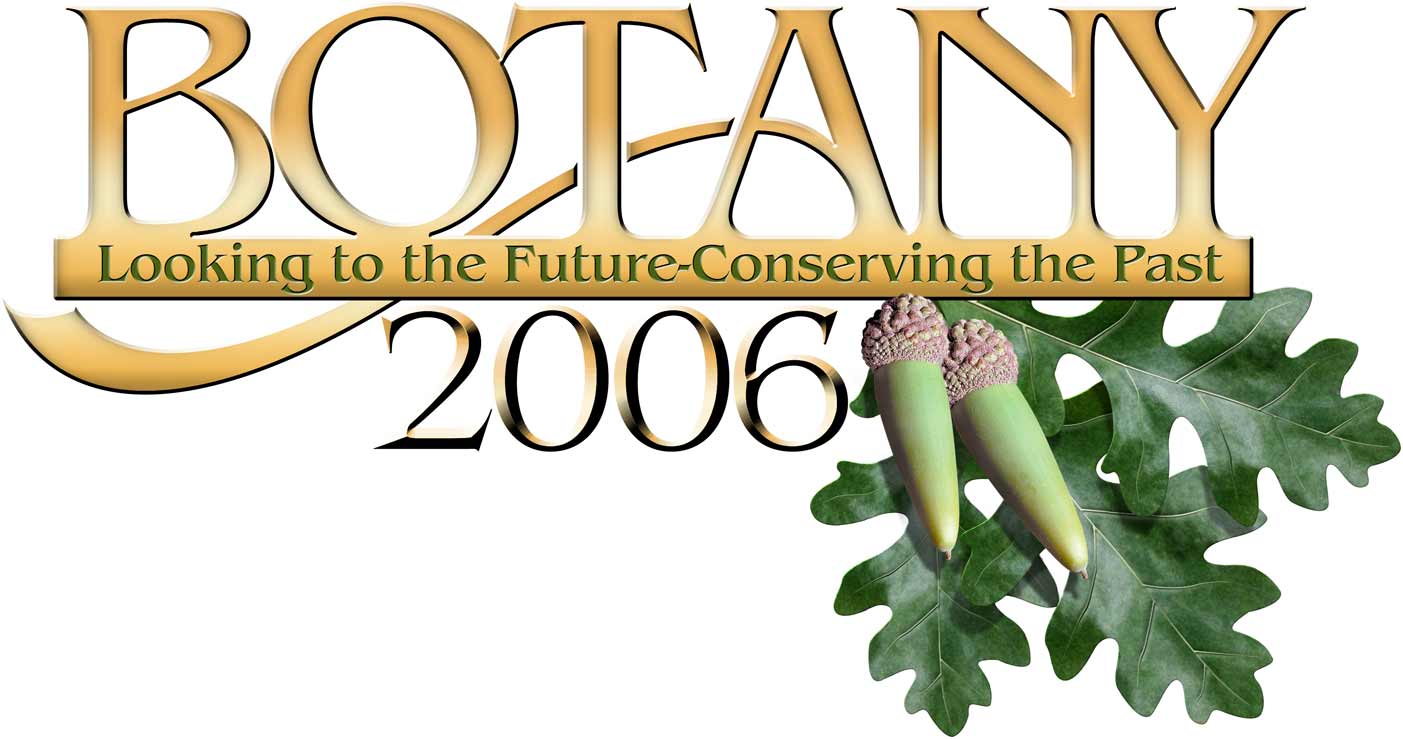As a model program for promoting innovation in science
teaching, the Education and Outreach Forum has become an integral
component of
our annual meeting. Beginning in 2002 at the Wisconsin meeting,
the Forum has attracted hundreds of educators from around the country.
With a variety of formats from discussions to workshops, the sessions
provide a means for participants to explore novel approaches to
integrating
plants into the classroom and to reach out to broaden participation
in science in general. The Forum is a must not only for teachers
but also for researcher who are interested in making their results
accessible to students of biology at all levels. The global significance
of plants continues to grow. It is therefore vital that botanists
and their professional societies work to ensure that plants are
represented in the undergraduate and graduate curriculum, as well
as in science
outreach initiatives. Each year, the Forum has delighted attendees
with informative sessions and a stellar key note address. Botany
2006 will include the fourth Forum, which promises to be enlightening,
engaging and lively.
The Forum begins on Saturday morning and will include informational sessions,
interactive panel and roundtable discussions, and breakout groups. Sunday's
offerings include a series of FREE hands-on workshops. Two-hour, half-day,
and full-day workshops will be organized so that attendees may participate
in workshops and/or field trips, also being planned for Sunday. The Call
for Workshops has already been posted on the conference web site.
A new feature of the 2006 Forum is the opportunity for California teachers
to receive up 15 Continuing Professional Credits (CPEs) for attending
the Forum Session, Scientific Workshops, Field Trips and/or the Scientific
Program.
Topical Sessions
TOPICAL 'THREADS' - Individual sessions are grouped within the topical
themes, or `threads' listed below.
• Emphasizing Botany across the Curriculum - Sessions on what is the
vital content to cover, and what's at the cutting edge within
disciplinary areas (e.g., systematics, development, etc.), how to promote plants
in the classroom and among your colleagues, developing interdisciplinary
courses/curricula, and educating pre-service teachers about
plants”
•
Designing Investigative Laboratories - Sessions on `model,' or best-practice,
labs (e.g., “Using Wisconsin Fast Plants to study plant development,” “Using
instructional technology to examine photosynthesis”)
•
Engaging Undergraduates in Research - What are the challenges of mentoring
undergraduate research students?, “Publishing with undergraduates
in peer-reviewed journals, “Using your courses to feed
your research program”
•
Developing Effective Teaching and Mentoring Skills - “How to
become a teacher-scholar,” “How to review manuscripts and
grant proposals,” “Tips on balancing your academic time,” “Graduate
student training programs: The do's and don'ts”
•
Supporting Effective Teaching and Learning - Sessions on funding (e.g.,
information about grant sources, tips on writing proposals and grant
management); “Managing a university greenhouse or herbarium,” “Tips
for Chairs and Deans,” “How to best prep an Introductory
Lab,” “How to assess the effectiveness of an
advanced course”
•
Reaching Out beyond the Ivory Towers - “Linking up with botanical
gardens and arboreta,” “Linking up with teachers,” “Linking
up with the media,” “Designing and implementing workshops
for teachers,” Sessions on best-practice initiatives.
Session
Types
Four types of sessions will be included in the FORUM
program, and these are listed below. Organizers will be able to select
the most
appropriate type of session for their topic.
• Informational
Session - A presentation by one to three speakers in which specific
information is conveyed. Informational sessions should
leave a minimum of 20 minutes for questions and answers. - An
introduction by one to three facilitators followed by time for in-depth
discussion
or an organized activity that engages the audience. Two thirds
of the time period should be devoted to discussion and interaction.
A
breakout
session often culminates in a commitment: group recommendations
or personal agendas for future implementation.
• Panel Session - Two to four panel members including a moderator, each
of which may give a brief introduction, followed by discussion
among them and with the audience. Half of the time period should involve
audience participation.
• Roundtable Session - A roundtable is a freewheeling discussion, usually
with multiple viewpoints. The discussion is facilitated by a
moderator, but there are no formal speakers. The moderator sets the stage for
the discussion by providing one or two provocative questions.
Virtually
the entire session is interactive.
Deadline
for receiving session proposals is April 1, 2006.
Submission
of session proposals should be conducted online using the Abstract
Submission Site, which is now open.
A Registration Brochure for Botany 2006 will be mailed to members
of participating societies in spring 2006, and it will be available
online
at the conference web site.
